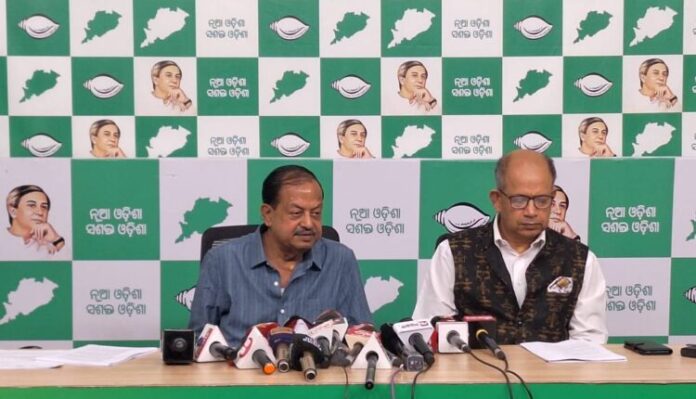Bhubaneswar: The Biju Janata Dal (BJD) has vehemently opposed the Draft UGC Regulations – 2025, calling it as a threat to federalism and the autonomy of the state universities.
The BJD said that the proposed regulations pose threat to the quality of higher education in the country.
The party has strongly rejected proposed provisions for appointment of vice-chancellors and other academic staff.
In a joint press briefing, BJD’s Coordination and Activities Committee Chairman, Debi Prasad Mishra and former Rajya Sabha MP Dr. Amar Patnaik urged the UGC to reconsider the draconian provisions before finalizing the regulations.
One of the most alarming aspects of the draft regulations is the undue centralization of power, which grants absolute authority to Governors—who function under the influence of the Central Government— in appointing Vice-Chancellors and academic staff. This move blatantly undermines the principles of federalism enshrined in the Indian Constitution, the senior BJD leaders said.
Despite state governments being responsible for funding and maintaining state universities, they have been completely sidelined in the appointment process. The overreach of the UGC and the Central Government is evident in Clause 1.2, which extends the UGC’s authority over state universities established by state legislatures.
These regulations override state laws, thereby diluting state legislative powers and eroding the autonomy of higher education institutions. The proposed Search-cum-Selection Committee, solely appointed by the Governor, further excludes state governments from playing any role in university governance, leading to an unjustified concentration of power, the BJD said.
The draft regulations open the door to favoritism and bias in selecting Vice-Chancellors and faculty members, compromising meritocracy, academic freedom, and institutional integrity. This intrusion by the Central Government weakens the credibility of the education system and hampers the progress of state universities.
The BJD also raised concerns over the proposed appointment criteria, which now include “notable contributions” in non-academic fields, as they introduce subjectivity and potential bias.
The BJD said that it is committed to protecting the autonomy of state institutions and upholding the spirit of cooperative federalism in India’s education system.

